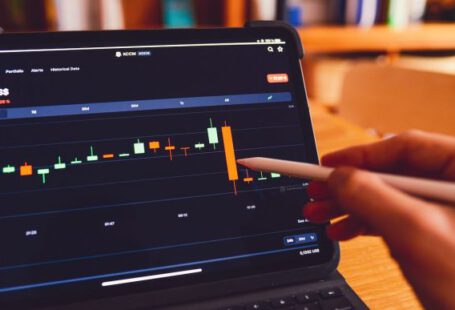The global economy has been hit by a wave of uncertainty as trade tensions between major economies continue to escalate. Investors, both big and small, are feeling the impact and are adopting a cautious approach when it comes to their investment decisions. With the threat of a full-blown trade war looming, the markets have become increasingly volatile, leading investors to seek safe havens and reevaluate their risk appetite.
Rising Tensions and Market Volatility
The ongoing trade tensions between the United States and China have been at the forefront of investors’ concerns. The two largest economies in the world have been locked in a tit-for-tat battle of tariffs, with each side imposing levies on billions of dollars’ worth of goods. This back-and-forth has created an atmosphere of uncertainty, as investors worry about the potential implications for global trade and growth.
As a result of these tensions, stock markets around the world have experienced increased volatility. Sharp swings in stock prices have become the norm, with investors nervously watching every development in the trade dispute. This volatility makes it difficult for investors to make confident decisions, as they are unsure of how the situation will ultimately unfold.
Seeking Safe Havens
In times of uncertainty, investors often flock to safe haven assets that are perceived as stable and secure. Gold, for example, is considered a safe haven investment, as it tends to hold its value during times of economic turmoil. In the face of trade tensions, the price of gold has been rising, indicating that investors are seeking refuge from the stormy markets.
Government bonds are another popular safe haven asset. Investors are more likely to invest in bonds issued by governments with strong credit ratings, as they are seen as less risky. As trade tensions have intensified, demand for government bonds has increased, pushing their prices up and driving yields down.
Reevaluating Risk Appetite
The heightened uncertainty surrounding global trade has also prompted investors to reevaluate their risk appetite. Riskier assets, such as stocks of emerging markets or companies heavily reliant on international trade, have become less attractive. Investors are shifting their portfolios to include more defensive stocks, such as those in the healthcare or consumer staples sectors, which tend to be more resilient during economic downturns.
Additionally, investors are being more cautious when it comes to investing in countries heavily involved in the trade dispute. The fear of potential economic slowdowns and disruptions to supply chains has led investors to reduce their exposure to these markets. This cautious approach reflects the understanding that trade tensions can have far-reaching consequences that go beyond just the countries directly involved.
Looking Ahead
Investors remain cautious as they navigate the uncertain waters of the trade tensions. The outcome of the dispute is still uncertain, and the potential implications for the global economy are vast. Until a resolution is reached, investors are likely to continue seeking safe havens and adjusting their risk appetite.
It is crucial for investors to stay informed and keep a close eye on developments in the trade dispute. Trade negotiations, policy announcements, and economic indicators will all play a role in shaping market sentiment. By staying vigilant and adaptable, investors can better position themselves to weather the storm and make informed investment decisions.
In conclusion, the ongoing trade tensions have created a sense of caution among investors worldwide. The volatility in the markets, increased demand for safe havens, and reevaluation of risk appetite all reflect the uncertainty and anxiety surrounding the trade dispute. As the situation continues to unfold, investors must remain cautious and agile, ready to adapt their strategies to navigate these uncertain times.




